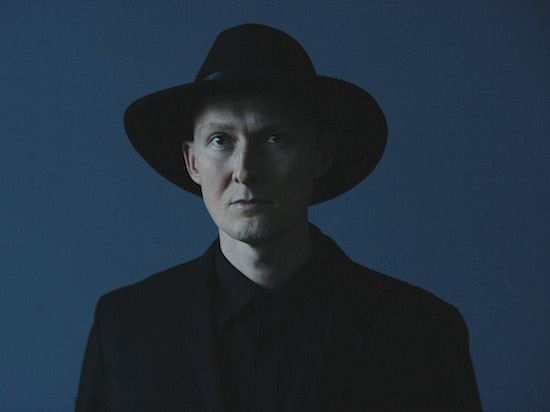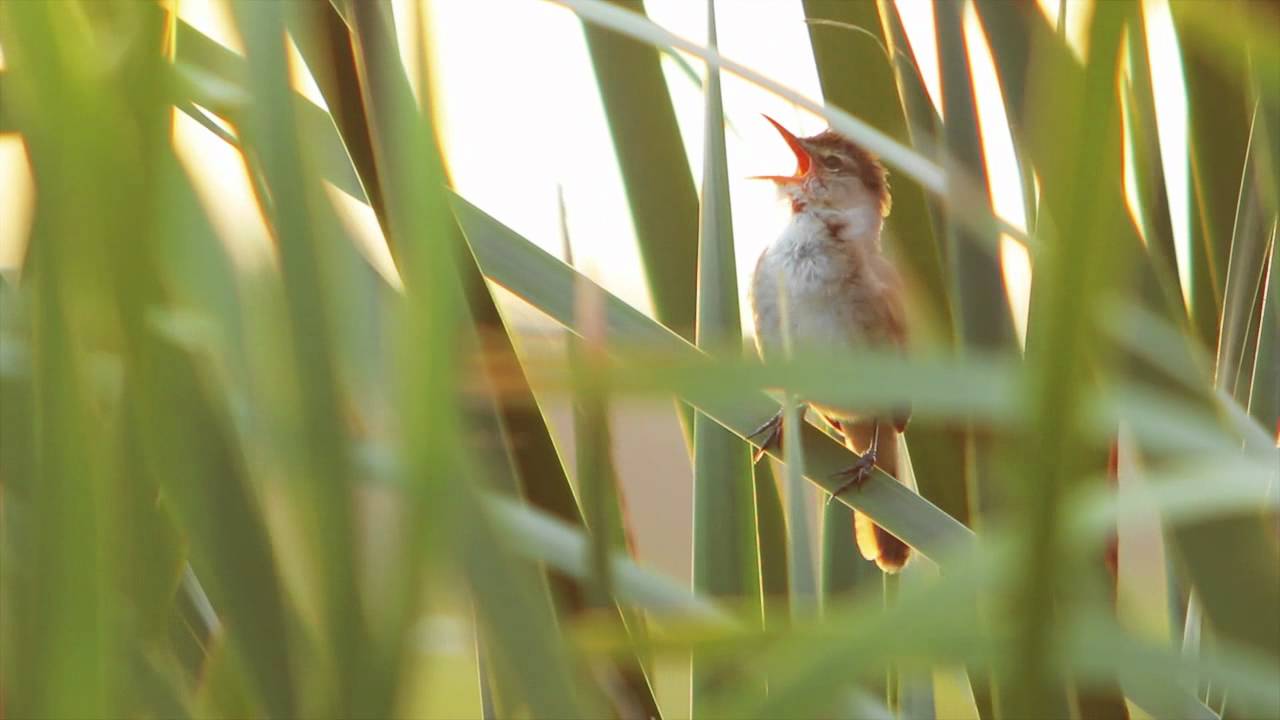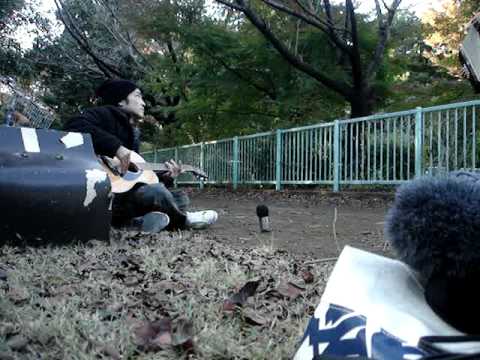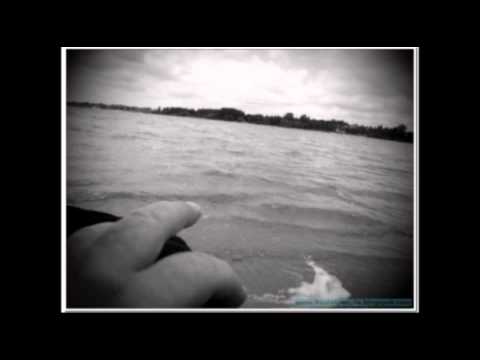All photographs by Traianos Pakioufakis
Starting out as a bumbling, fumbling teenager in the post-post-colonial backwaters of Brisbane, Australia, sound composer Lawrence English has grown into a surveyor of sound, continually exploring the unknown, untethered terrain of all things audible and trying to give his captured offerings a counterpoint to our terrestrial mores. His discography covers compositions, site-specific installations, field recordings and manipulated spaces, forever challenging the concepts of memory and perception through sonic imaginings, and implicating that the role of the listener is just as if not more important than that of the creator.
Jumping From Musical Fumbles To Found-Sound Recordings
Lawrence English: I can be honest here and say I failed music in Year 8 of high school. I put this entirely down to the recorder. And by that I mean, the recorder that is cheap, made from plastic and sounds like someone playing a melody through their nose as they are being lobotomised. Not the kind of recorder say the amazing Natasha Anderson plays. If I learned on that thing I would have led an entirely different music life. If you want to kill off a child’s interest in music, get them a recorder. Simple as that.
I played a little piano as a tiny child and then some acoustic guitar, neither of which grabbed me. Around the time I was completely hating on the recorder, I built a kind of weird percussive drum kit in my room, literally from plastic tubs with towels over them, pieces of metal and whatever else I could find in our kitchen. After a few more failed attempts at making what I guess was a bastard drum kit, my parents very kindly suspended mattresses around the walls of a weird storage room we had under our house and bought me a very modest drum kit for my birthday. They didn’t see me again for a couple of years.
I loved playing the drums, and actually I still do, even though I am a god awful player. Listening to people like Tony Buck or Will Guthrie reminds me that I made the right choice in being too lazy to lug drums into venues. Those guys make the drums an object of transcendental sound; I made the Sex Pistols sound like math rock.
However my interest in sound arrived before my passion for music. My father was a keen birdwatcher and he’d take us to this particular part of Brisbane’s old port, an overflow for a creek that flowed into the Brisbane River. My brother and I played there what felt like every weekend. My father would encourage us to go birdwatching, something I still enjoy to this day.
There was one species of bird, the Reed Warbler, that existed there. It was like some kind of avian Holy Grail. It was small and brown and very difficult to see, but my God that syrinx on that thing was like the ultimate bird synthesiser, just breathtaking. It was very difficult to spot as it was camouflaged by the swamp reeds it lived in. Using binoculars as a kid is a disaster and I could never see it. After much frustration one time looking for the bird, my father told me to close my eyes and listen. He said I should sense where the bird was and then to open my eyes and look for it. I saw it the first time I opened my eyes. Not that I recognised it at the time, but that was the first moment I realised the capacity of our listening as a means of sensing the world in a way that wasn’t through our eyes. I’ve never lost that fascination.
First Japanese Concert At Off Site, Tokyo (2003)
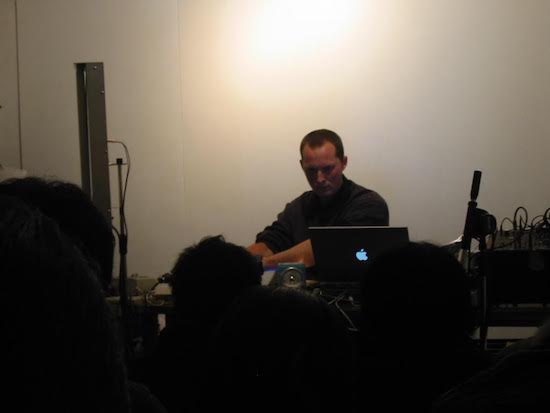
LE: I have such a fond memory of this visit. It was the first time I travelled with my wife overseas; in fact it was the first time she’d been overseas. It was also my first time in Japan, a place I had wanted to visit since I was about ten! I loved manga and anime as a kid, so Japan was scorched into my mind as a location of fantasy. Around this time I was really into a lot of the emergent improv coming out of Tokyo too. The whole new silence of Onkyo really appealed to me. It had a sense of time and needing to be there, that really struck me. It was about being present to your ears, I liked that.
I was invited to come and play an end of year bōnenkai party at the space. I was invited as a special guest as the event really was for the friends and family of Off Site to celebrate the year. Ami Yoshida, Taku Sugimoto, Tetuzi Akiyama, Optrum and a bunch of other amazing folks performed. It was an incredible night.
I had developed a kind of no-input computer feedback piece for the performance. It worked through using some of the electromagnetic signatures of the computer. In Australia, we have 240 volt power, which has a very particular signature that cycles at 50hz. The piece relied on this signature to function. Of course when I plugged in at Off Site, I realised that Japan runs on 120volts and 60hz cycles. The piece operated completely differently. I remember the moment of starting it thinking, ‘Well it’s never sounded like this before’, and then just realising what was happening due to the power cycling. That’s site specificity for you I guess. Afterwards, I remember Otomo Yoshihide very kindly complimenting me on the piece, which was a huge thing to me. He then took great care of us at the party, I’ll never forget his kindness. It’s no wonder he has been able to achieve such amazing things with his life in music.
‘Ghost Towns’
Ghost Towns by Lawrence English from Qwartz on Vimeo.
LE: In about 2001, I became fairly obsessed with ghost towns in Australia. The gold rush here at the end of the 19th century was quite a spectacle to behold, it had all the trappings of modern day capitalism, but just more beards and worse body odour. My interest was specifically in the idea of these transient spaces, that they were some kind of metaphor for greed and hopeless desire. They were transient in that they were either cannibalised by the people living there when a new gold deposit was found (literally sometimes they just tear down the pub and throw it back up 100 kilometres away), or these places were abandoned and slowly reclaimed by the earth. I liked the idea that the notion of the human, on land, was so temporal. The most amazing locations were when there was nothing left of the town at all, except headstones. The buildings were eaten by termites and whatever metal was left rusted away. Only stone escaped the century of erosion. But in time that vanishes too.
The original work was developed as a film installation and a concréte sound work. Sadly the original tapes were damaged, ironically by ants and the digitisation, rendered down is all that remains. Sad really. But nothing is forever… and some things are, even [just] for a decade or two.
Scanner Toop I/O3 – Live Show At Brisbane Powerhouse And Café Oto
DAVID TOOP, SCANNER, IO3 LIVE AT OPEN FRAME (CAFE OTO) from ROOM40 on Vimeo.
LE: I/O3 was an improvised music trio I played with for the better part of five years. I’d met Heinz Riegler in maybe 1998 or 1999, when I was commissioned by Massive Magazine to cover the recording of the second Not From There record. I went down and spent a few days in the studio with them. Tam Patten was an incredible record buyer at Rockinghorse Records in Brisbane and put me onto tonnes of great music. We didn’t play all that often, mostly down to all of us being busy and the opportunities to play were modest, but when we did it was usually a lot of fun.
I think the most curious show, experientially speaking, was at the request of Mike Patton, who kindly asked us to open for Fantomas. He asked us to play for two hours. We played off to the side of the stage, where no one could see us. There was just this dim blank stage staring back at the audience. About halfway through, during which time we’d played this incredibly ambient tonal drone, the 2000+ crowd started to chat and rattle the barricade. I looked out and people were looking really uneasy.
Then this chant started, ‘Fuck off, Fuck Off, Fuck OFF, FUCK OFF!’ It kept getting louder and louder. About five minutes into the chant we dropped into a massive wall of noise which was met with a shower of beer bottles as people on the side had spotted us. I got hit in the head with a bottle and it landed on my laptop. It was still full! People hated it that much that they threw a full bottle of beer at us. When we finished, Mike Patton came over and quietly said, “Thanks so much, now they’re ready for us”. He went on stage five minutes later and the audience literally exploded. It was a smart tactic. I have a lot of respect for Mike Patton. We also did a show at Brisbane Powerhouse with David Toop and Scanner. I was asked to invite some artists I thought could make a positive contribution to the REV festival. I invited David and Robin as their work and histories as musicians and artists really resonated with the festival themes around alternative ways of considering instruments, the possibilities of contemporary electronics and the importance of sound in space more generally. I was, and still am, a huge admirer of these gentlemen. They are now dear friends and I count myself so very fortunate to have had their encouragement during those early years. It’s thanks to them and people like DJ Olive and David Shea that in some way I felt like Room40 had a place out there in the wider world. That it made sense and that it was meaningful not just to me and audiences, but also to artists such as these people. Anyway, the five of us gave a concert together at the Powerhouse. It was really a pleasure. David and Robin both have very specific approaches, as did I/O3 and somehow we resolved them very nicely. We actually all played together in London for the 10th anniversary of Room40 at Café Oto (see above), which was lovely also.
Tenniscoats – Temporacha
LE: At the end of 2008, I was going to take part in Francisco Lopez’s Mamori residency in the Amazon. Needless to say that was an amazing experience and still to this day a part of me is living in that sweaty, heaving jungle of life and death. On route to that trip I stopped over in Japan, and then after that to the UK to create an installation at the Huddersfield Contemporary Music Festival. When I was in Japan, I visited with my friends in Tenniscoats. I stayed with them for a few days and during that time we made a series of recordings based around the concept of musical field recordings. I had all my equipment with me for recording in the Amazon and I was very interested, as were Saya and Ueno, in the way place impacts on how songs form and exist. So we started to travel all around Tokyo and we were making recordings in various locations. Some were quite tranquil really, at parks and by watercourses. Some were a little more dynamic; the underpass recording where ‘Ninichime’ was made was probably the most intense acoustic space we found, although the auto repair shop was pretty unusual too. What I particularly love about the recording of ‘Ninichime’ is that the traffic becomes part of the composition. The passing trucks and cars form a kind of compositional eruption or point for transition that Saya and Ueno used so very effectively.
I must confess I am completely in awe of them as musicians. Literally they can make the most beautiful songs from the most meagre of means. They are true musicians in that sense. I come from another approach altogether, one that’s more process driven, and so there’s a good space somewhere between our two approaches that unlocks something interesting for us both. I am hoping there’s a chance to realise a new project together in the next couple of years. We’re long overdue now. Sadly I don’t get to Japan as often as I did back then. We are about to reissue Totemo Aimasho though, which I’m very pleased about.
Kiri No Oto
LE: Kiri No Oto, at least when I think about it, marks a punctuation point in the way I approached music. For one, it was that album that most merged field recording work with the compositional side of things. This interest resulted from an experience I had travelling by train to the Unsound festival in Krakow. It was early in the morning and I did not sleep well on the train, so I was up looking out at the predawn. There was a moment where we passed a majestic stag on a small hill, but most of the time the view was limited by thick duotone forest; black trees, white snow. Then, as we approached a town a few hours from Krakow, the sun started to rise and I could see this thick fog beyond the treeline. As we stopped at the station the fog, or smog, or whatever it was, thickened and the light created this diffusion. In that soup of vision, I started to peer into it and I noticed if I pulled out one object, I could make sense of it – say the church spire. The moment I tried to put it in context with the other elements, the detail was lost into a wall of visual noise. It was this effect that became the focus of Kiri No Oto. The ideas around harmonic distortion kind of erupted from this idea of an auditory transcription of the visual effect of fog, in more a philosophical approach. Essentially that interest is down to how harmonically related materials perform when they are under the pressure of distortion of high sound pressure levels. Our ears often can’t take all that in and we need to navigate very carefully if we’re to make anything out of that wall of sound. This has been a constant source of exploration for me in the past decade.
Work With Artists Like Ben Frost In Mode As Agitant
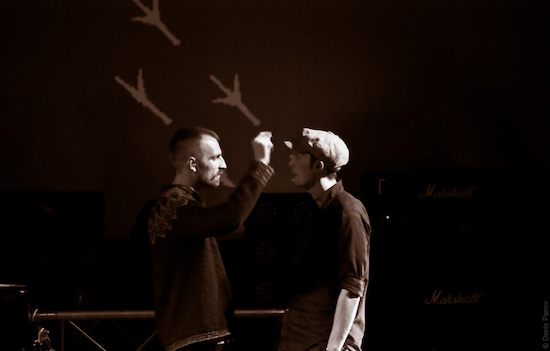
LE: Ben and I have known each other more than fifteen years now. He is probably one of my oldest friends. I have the utmost respect for the man: he’s hard working, smart, dedicated and ruthless in a way that is utterly loveable. We’ve worked together on a great many projects together, shared some of my most enjoyable touring experiences – especially when we did a few shows in Russia. Actually, if Ben owes me anything it’s his life. Back in the late 00s, I refused to catch a train directly after this show we played in Moscow to go to St Petersburg for a festival there. I was with my better half Becks and we both wanted to see Red Square… BAD! So anyway, we did and it was of course amazing. The morning after that, we were in a car to the airport bound for the other concert and Ben’s dad called to check he was OK. That overnight train was blown up by terrorists. I’ve had the great pleasure from time to time to be something of an agitant to Ben and his work. By this I mean a variety of things; sometimes it’s nothing more than a bouncing board, other times it might be a collaborator in terms of contributing materials to his work or butchering a track order or piece, as a way of offering another way of listening to it. Sometimes we need people to do that for us and I think we both have done that for each other. He certainly did that for me on Wilderness Of Mirrors actually. He pushed me to move toward what that record became and I am indebted to him for that. Right now I have been working on a couple of mixes for Ben’s latest record as well as helping to suggest ways that the order of the record can be to produce different relations between the pieces. I actually tend to do a fair bit of that kind of macro-editing on people’s recordings. I did some edits and nudges for Tim Hecker on some of his albums and I did a fairly radical rethinking of the last David Toop record which I believe he found incredibly helpful and insightful. I like to think that this kind of approach has its worth. I know they’re people whose input I value greatly.
The Peregrine by J. A. Baker
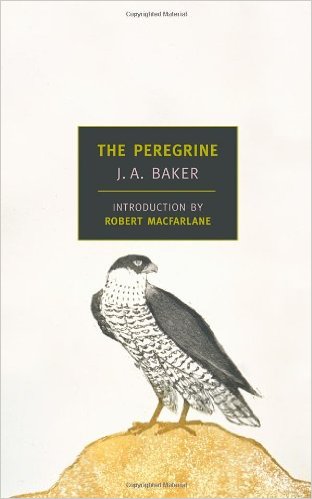
LE: I can thank David Toop for my discovery of The Peregrine. When I was staying with him one time, the book had just arrived and was sitting on his desk. I opened it, turned to a random page and started reading. I’d not heard of J.A. Baker before. Within a paragraph I was sold. I read his description of an owl in flight and the place surrounding that owl. I was there; acoustically I could hear the sound coming off the page. It was magic. I still open the book randomly and read the odd entry. I find Baker’s writing incredibly affecting in that it maintains an uneasy beauty that only grows in time. He finds a way to summarise the intensities of the world, and of being, without ever leaving the present moment. I think everyone should read this book. It is why language was invented.
Viento & Antarctica
Wind is a curious subject for listening and recording as it’s not really the subject of the recording, it’s the objects activated by wind that become the acoustic manifestation of that physical experience. I’ve always been fascinated by wind and how it acts. It’s so powerful and physical, but so elusive. I was very fortunate to be able to make these two recordings on one field trip I undertook in 2010. I was invited by the Argentine Antarctic Division to visit two of their bases as an artist in residence. It was an incredible experience as you’d expect. The recordings made in Patagonia were the result of a lengthy stay there due to bad weather. There’s only one plane, a Hercules, that can fly to Antarctica to service the Argentine bases. When we arrived in Rio Gallegos, the wind was too strong for it to take off, so we were stuck there for some days. Everyone else bunkered down in the accommodation at the base, but I decided to head out and record almost all day and into the evening. It was vicious, but my God it sounded amazing. There were almost no trees there, so the sound carried in very unusual ways. And when the wind found an object, it was as if it summoned up all its hate and hammered that point surface with all it had.
The Antarctic recordings were made across two large snow storms that occurred, one at the Marambio Base in the final days before I left, and the other at Esperanza Base, which actually I got stuck in. I was about four kilometres from the base when it suddenly blew in. I couldn’t see more than a couple of feet in front of me. Thankfully I had GPS and a sight line to the base before the storm came in so I could orient myself. It took hours and hours to get back there. The best part was when I arrived back everyone was so casual about it: “Oh you’re back, that’s nice…" Got to love that attitude!
Cruel Optimism
Lauren Berlant is one of the most interesting and provocative critical theorists writing in the USA today. Her work is increasingly relevant and I feel strongly that Cruel Optimism is more useful today, as a means for critiquing current political and social happenings, than when it was first published (in 2011). When I first read the book about five years ago, I was really struck by how she developed this idea which exists when something you desire is actually an obstacle to your flourishing. I found it a very useful way to start thinking about the root cause of some of the issues that I was thinking about at that time. After Wilderness Of Mirrors was released, I found myself spending a good deal of time contemplating her writing as a means of unpacking so many of the crises that were in this constant state of unfolding. Her writings around trauma, as a state of being rather than exception, I found very useful. I was particularly drawn to a thought she presents in that trauma possesses us, but cannot be possessed by us. I felt this had a wonderful application to contemplating how sound functions in performance – that it occupies us, but it is fleeting and completely temporal. The experience is but for that moment and then buried in the shallow grave of memory.
In terms of how those writings came to shape the record, well in some cases the relations are quite direct. The research I was doing around issues that Berlant’s writings helped unpack, issues around the refugee crisis stemming from the bombing of Syria or the protest movements around Black Lives Matter, had tangible acoustic materials, such as found sound recordings and the like, that were woven into the record. Other ideas were more relational to the character of what I tried to bring out in the compositions. The wonderful thing about sound is that it is invitational, so ultimately each person is going to find their own relation to the material. Should they choose to dig deeper and approach my relationship to the work then another doorway is there for them to step into another space that is created by the recordings. Music does not exist in isolation, it is rooted in the political, the social, the cultural. We need to remember this at all times, and especially in these times! Our voices have never been so very critical.
Cruel Optimism is out through Room40 on February 17. Lawrence English is playing solo shows in Milano, Italy (Feb 13) and the Rewire festival at The Hague (Feb 18) before joining Jamie Stewart of Xiu Xiu to do a short run of HEXA shows

